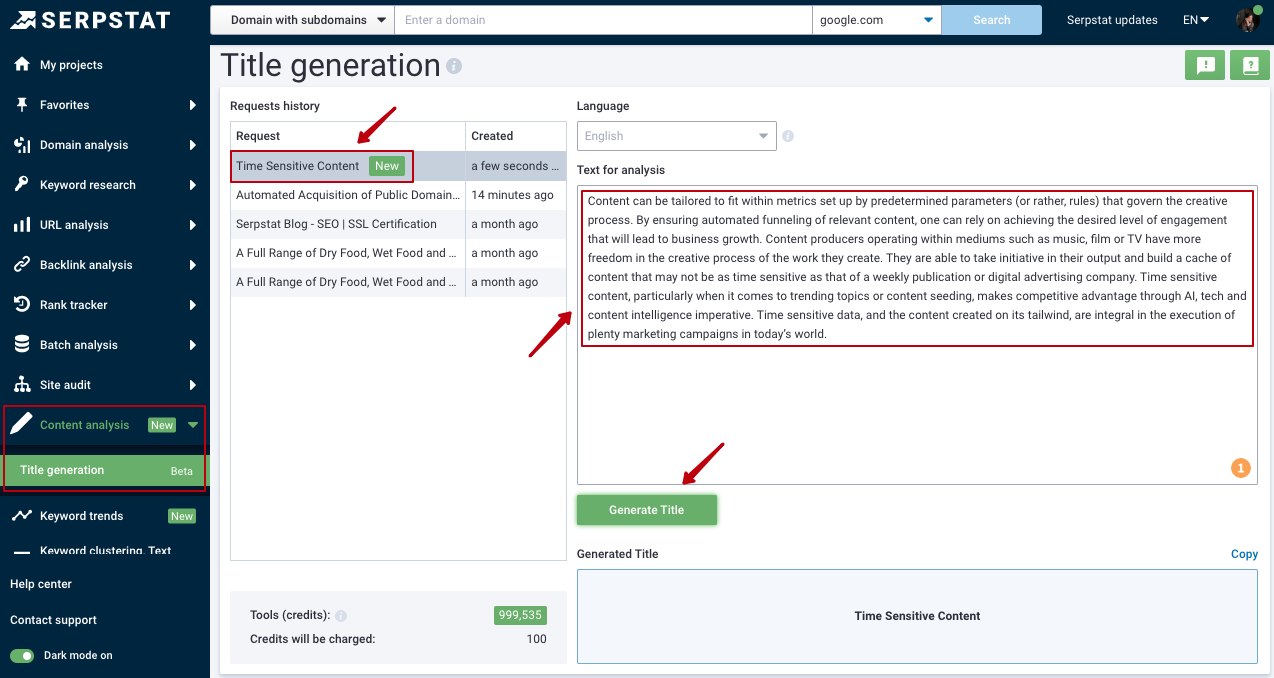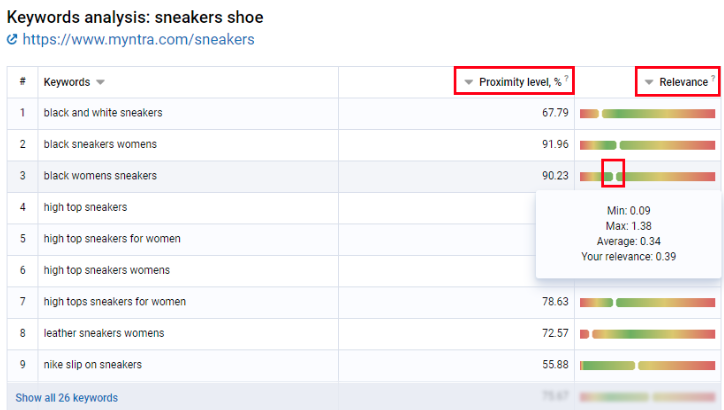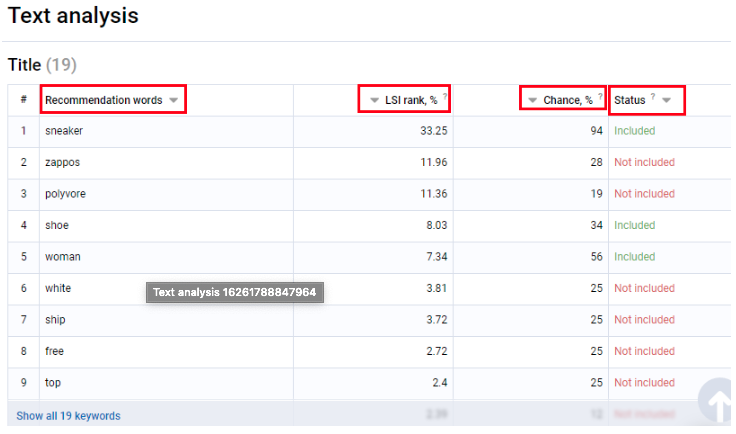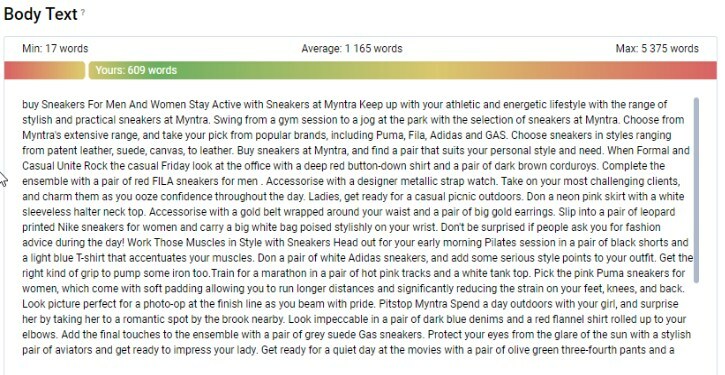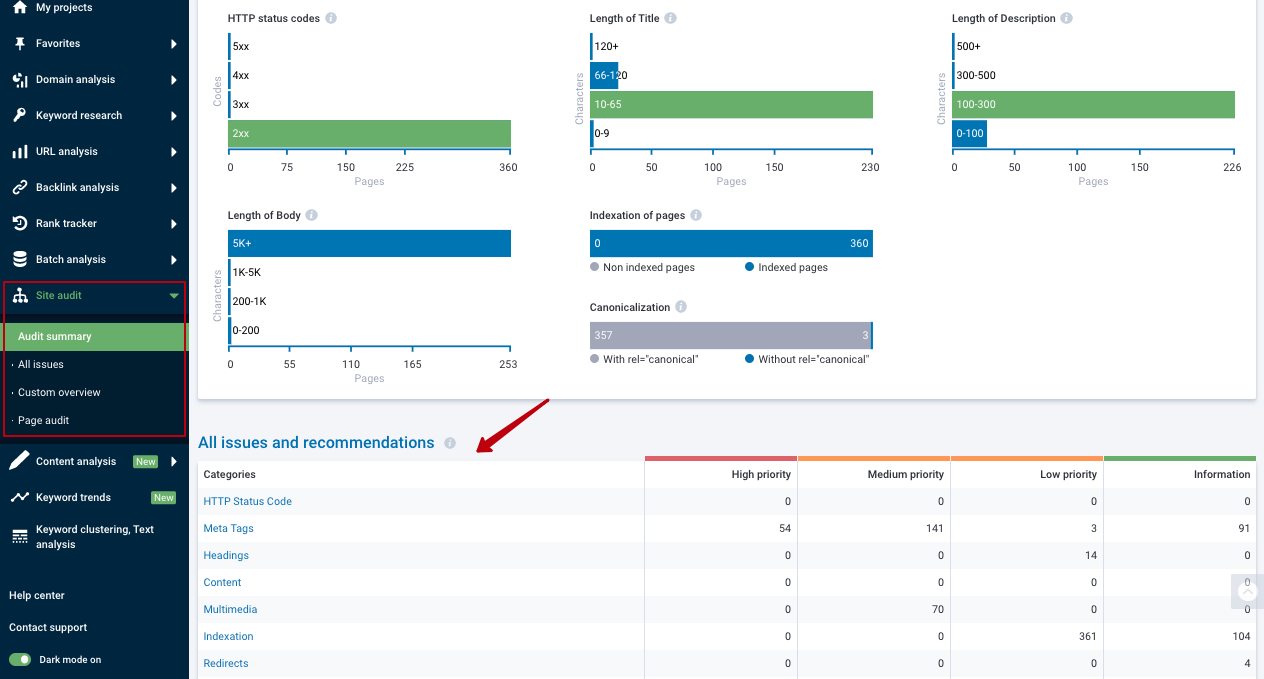Start Exploring Keyword Ideas
Use Serpstat to find the best keywords for your website
AI-Generated Content: Can Google Detect It?

In today's world, it shows promise in creating content such as articles, blog posts, newsletters, and even videos.
There were many experts involved in this Twitter chat, and you may already be familiar with some of them:
at Stradiji.com
at Serpstat
at Easebuzz
at Holistic SEO & Digital
at Hum JAM
at Go Fish Digital
at WordLift
at CallMeFred.com
at Yıldırım Sertbaş
#2: How Do Google Webmaster Guidelines Define AI-Powered Content
#3: Can Google Detect AI-Generated Content?
#4: AI-Powered Content Creation Tools
#5: Powerful AI-Assisted Content Production Procedures
#6: AI-Generated Content Production Tools vs. Human Writers
Final Thoughts
1. Google's Perception of AI-Generated Content
If you have a wide range of content to operate for your brand, AI-engineered content management is worth considering.
It is the application of Machine Learning to create content based on artificial intelligence. The purpose: elimination of the need for human involvement in the content creation process.
Based on the criteria a user enters, AI-powered content generators can produce various types of text-based output.
John Mueller, a search advocate, says that content created automatically by AI writing tools violates Google's Webmaster Guidelines. It is still up for discussion in the SEO community.
It is widely believed that AI-generated content falls into the category of auto-generated content, which can result in a manual penalty.
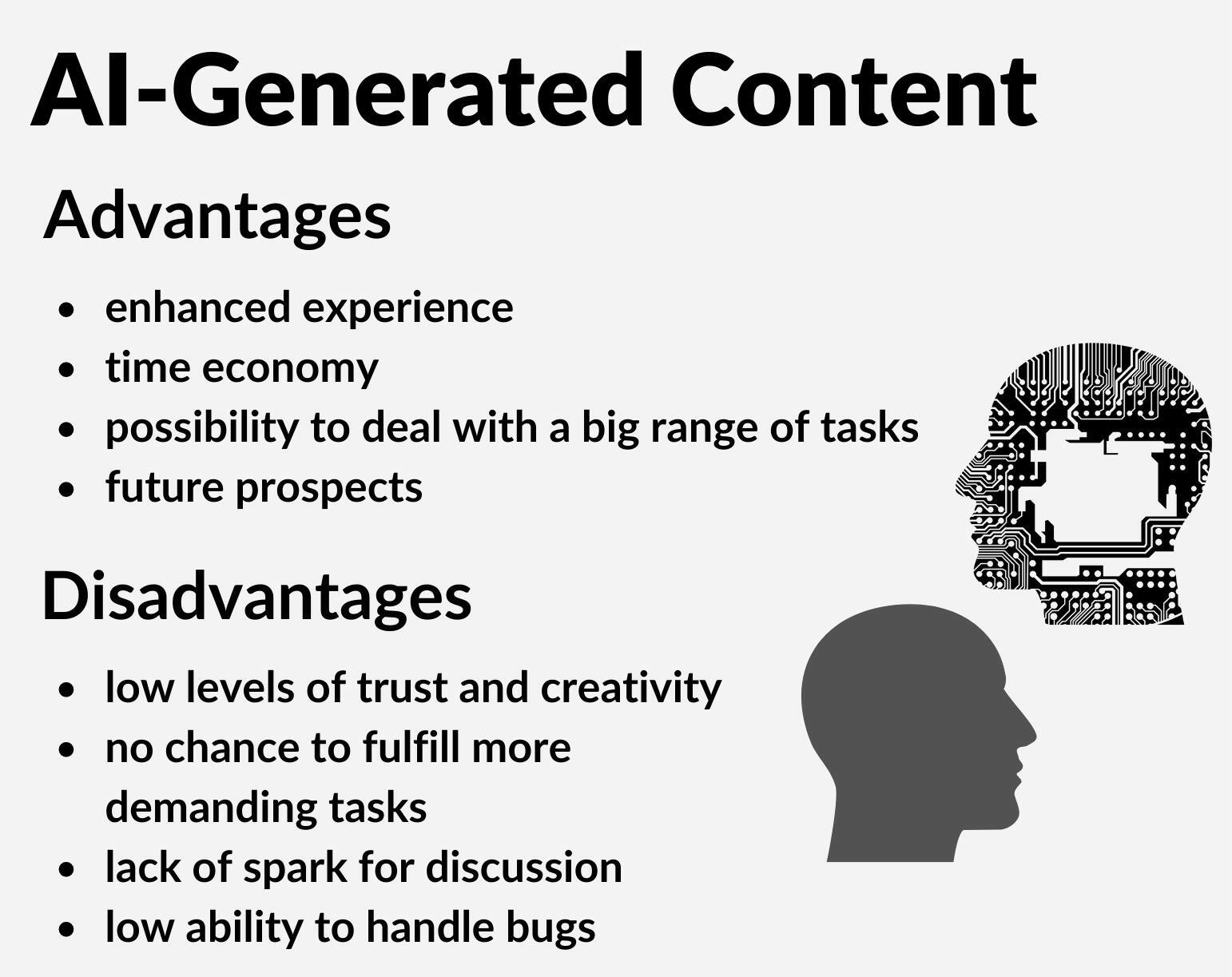
It is against Google guidelines to scrape texts, search results, and merge other web pages generated through automated tools.
Likewise, you don't have to worry about AI-assisted content production with a human author’s review and final editing.
Most AI-powered content writers are only a couple of steps away from the old-fashioned "content spinners." Some newer ones are very similar to the game "Mad Words"... (the game where you give a noun, adjective, verb, etc., and then fill in the blanks for humorous results).
Part of the problem stems from the application of the approaches. Another issue is that people simply don't understand and just use the "code."
As for usage — it's a little different from scraping existing/competing pages, compiling words/phrases, mapping structure/flow, etc.
So long as real human amends and edits, no harm.
Just publishing the MGC is likely to hurt your SEO.
I think that for now, Google’s algorithms may lack the ability to detect AI-generated content without the help of human reviewers.
Now let's move on to the main AI-powered content updates in Google's Webmaster Guidelines and their meaning for SEO projects.
2. How Do Google Webmaster Guidelines Define AI-Powered Content
The search engine gives several examples of actions that content creators should take into consideration to avoid manual actions it may impose on the site.
The main rules would be:
With MUM and similar algorithms becoming more and more decisive in rankings, I think Google will be getting much better at detecting auto-generated content. That's why human proofreading is essential in this matter.
MUM is a multimodal algorithm designed to provide answers to complex queries by concurrently assessing information across multi-language text, images, video, and audio.
Most likely there will be some flexible amendments and the algorithms. Google can't forbid all kinds of AI content, as it's a part of technological progress.
Before posting, we should check the content for SPAM.
It might be an early signal that Google will be in the NLG market in the future. Google Docs already has some hints for that. They use generated text for KPs.
Tool to get a rough draft started or expedite your research? Surely it will be low-value content just for keyword rankings, fighting a losing battle.
- It shouldn't make the blindest bit of difference.
- It's not like it's a free pass, or permission to produce garbage.
- Likewise, it's just a clearer explanation of their stance/perspective/preference.
The availability of affordable NLG-based solutions is a potential threat for Google and for the Web in general. SEO and the content industry need to be ethical and user-centered to succeed.
Using AI in creating content for the projects doesn't mean it is doomed to failure. Ultimately, we should stick to the fact that AI can make content creators' writing better by assisting with grammar and vocabulary difficulties.
Join our #serpstat_chat!
Join #serpstat_chat to discuss the questions of practical SEO, trends, and updates with SEO experts.
We conduct them every Thursday at 2 pm ET | 11 am PT on our Twitter channel by hashtag #serpstat_chat.
3. Can Google Detect AI-Generated Content?
A search engine is more likely to detect content created by previous NLG (Natural Language Generation) models, such as GPT and GPT-2. In contrast, more advanced models like GPT-3 are more difficult to detect due to their similarity to human style.
As an example of how this might play out, Google may treat AI content similarly to backlinks. In technical terms, buying links is against the guidelines of Google. But practically, it is difficult for Google to determine if a link is a natural one or a trade-related one. In order for Google to act, it must break out of patterns.
As long as the text has a byline, has a consistent style, and is of high quality, it is unlikely that Google will notice a difference.
Unfortunately, the answers to questions such as the quality of the content in this document, whether it is based on actual data, factual errors, and whether the title is exaggerated cannot be given by the classical Google algorithms we know.
However, an artificial intelligence-supported algorithm such as MUM can easily do this. Therefore, unless finalized by a human author, Google can easily detect such content, and the site's rankings may drop.
So long as the content produced is deemed as "quality", and doesn't trip any of the existing spam flags, it will likely pass. Then it seems to be a matter of whether it passes the SERPs (users, links, etc.) — not so easy to pass.
However, as these approaches are mutually complementary, we are free to apply specialized tools to modify or complement the texts we create for the site's pages. And one of these tools is Serpstat SEO Text Analysis Tool.
In addition to the many tools and opportunities that the service offers, it allows us to analyze here Title, H1, and Body sections of the site's page, see the possible variants for improvement and implement changes straight away.
The report is provided upon analyzing the words already included in the project and on a group of competitor URLs.

Request Personal Demonstration
Our specialists will contact you and provide you with all the information needed.
These may include a personal demonstration, a trial period, comprehensive training articles, webinar recordings, and custom advice from a Serpstat specialist :)
4. AI-Powered Content Creation Tools
But in the future, technology will play a much more subtle role. Content is essentially a means of communication between people. There might be some automation involved in its creation, but it won't replace writers entirely. AI will definitely empower writers, and we may say that it'd be a faster working process.
It will become easier to rely on AI tools once they become more advanced. An example would be spotting grammatical errors.
When writers spend less time editing their own work, they will have more time to:
- explore new formats;
- find new insights;
- research new topics;
- and come up with better results.
I think that in a few years, these tools will improve significantly, and Google may have to reevaluate its approach.
It may turn out that the user was just looking for such text that was automatically generated :)
While it is possible for a society to behave irrationally and choose to use it to their detriment, I see Google will bring new updates on how to use such tech in a more likely outcome.
The major change is the size, scope of models, and the availability (or easier implementation) of scripts that access those models.
Whereas before you had to know the data structures, and/or linguistics, or implement systems that you had to train, etc., now you can just connect to an API with parameters.
Google doesn't really care if it's MGC, human-made, hybrid, or produced by blind mice singing psalms — so long as it's not garbage, they'll take it :D
You can use AI to accelerate the writing process, but you have to give the damn machine a proper brief, otherwise, you end up with irrelevant nonsense.
5. Powerful AI-Assisted Content Production Procedures
Then you can use one of the artificial intelligence-supported content production tools.
Google Docs has started providing AI-powered content summaries. I recommend that you edit the content you create in artificial intelligence-supported content production tools in Google Docs to make sure that the content summaries are created correctly by the algorithm.
So you can see if Google's AI-powered algorithm correctly understands your content. If not, you can rearrange the content.
- research a topic and make a rough draft with bits of text from sources;
- rewrite that with AI tools;
- check for engagement by a content maker & humanize the text;
- check for correctness, clarity and uniqueness with the AI tool;
- proofread it by a responsible person.
- Collecting data.
- Training a unique language model.
- Generating text.
- Some people want a system that aids in guiding the writers (the "brief" machines listing words for inclusion, etc.)
- Others want something that actually produces content (the "writer" machines outputting via templates/chunks).
The process/approaches you take depend on the tool and your expectations.
As it currently stands — you still need a fair bit of human intervention. And as tools (makers) mature, and the users get a better grasp of how to work, things will change.
Fixing on-site issues, editing meta tags, improving headings, multimedia and many more would be much more efficient with Serpstat Audit Tool.
It provides a list of issues found on your site (or separately site's page) and suggestions for fixing them.
6. AI-Generated Content Production Tools vs. Human Writers
A new HubSpot tool that helps keep track of the content creation efforts and their effect. This is where you can properly organize your plan, and create an outline for your upcoming content strategy.
It is yet another great example of how artificial intelligence can assist you in writing. Using artificial intelligence, the software gathers data like trending topics and search queries.
The AI-powered writing assistant Wordtune suggests different ways to make your writing more genuine and compelling. It allows you to easily rewrite the sentence in seconds.
This tool can create content for you and show how AI software can elevate your blog writing. It offers numerous features to make content creation easier.
As was already mentioned, the service offers you a Title Generation Tool that helps website owners, copywriters, and anyone who works with online texts automate the manual work.
Here are our experts' thoughts on it:
It's a harder skill to teach an AI tool, but when it comes to AI, you should never say never; better say “it depends” :)
Still, it is no doubt gaining a foothold in the content production process. Those marketers who do not experiment and discover the potential of AI for content could be left behind.
But, this is a general outcome of the future. AI can replace politicians, or judges as well.
- Yes: scripts will be able to produce common, everyday content — so long as there are plenty of existing examples and data.
- No: without data/examples — they won't be able to produce new insights, etc.
At the end of the day — the machines are much like us; they are reliant upon experience, understanding, information, and resources. If those things are lacking, the output will be too.
Learn, succeed, and share your experiences in this group: discuss workflows, network with other Serpstatmates, and contact our dedicated customer support representatives.
Get the latest product updates and industry news here!
Looking forward to interaction — we’re sure you’ll love our little community as much as we do :)
Final Thoughts
This will most likely result in more relevant, easier-to-produce, and audience-centered content in the future.
So feel free to discover and apply all the possibilities the newest AI-Generation tools offer!
Speed up your search marketing growth with Serpstat!
Keyword and backlink opportunities, competitors' online strategy, daily rankings and SEO-related issues.
A pack of tools for reducing your time on SEO tasks.
Discover More SEO Tools
Text Analysis Tool
Unlock the power of your text data with our advanced Text Analytics Tools
AI Content Detection
Ai Content Checker – realize if the text is AI-generated
AI Text Generator
Try our AI Content Writer tool and streamline your content creation process
AI Content Tools
AI Content Marketing Tools – simplify and optimize the content creation process
Recommended posts
Cases, life hacks, researches, and useful articles
Don’t you have time to follow the news? No worries! Our editor will choose articles that will definitely help you with your work. Join our cozy community :)
By clicking the button, you agree to our privacy policy.

